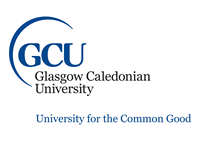Glasgow Caledonian University/ The Glasgow School for Business and Society https://www.gcu.ac.uk/gsbs/
Project Reference Number: GSBS/2022/006
Supervisory Team:
Director of Studies: Name: Dr Nick Davies
Email: [Email Address Removed]
GCU Research Online URL: (essential) https://researchonline.gcu.ac.uk/en/persons/nick-davies
Second Supervisor:Name: Dr Maren Viol
Email: [Email Address Removed]
GCU Research Online URL: (essential) https://researchonline.gcu.ac.uk/en/persons/maren-viol
Third Supervisor:Dr Pauline Bell
Email: plade@gcu.ac.uk
GCU Research Online URL: (essential) https://researchonline.gcu.ac.uk/en/persons/pauline-bell
Background
There is a need to explore and understand the potential for dispersion of opportunities for tourism development along the length of rivers in deindustrialised towns and cities. Often this development centres around small spatially concentrated city centre areas. These towns and cities have been developed around rivers due to the suitability in establishing trade routes, commerce and communities. Since deregulation of industry alongside rivers in Scotland, such as the river Clyde there is a need to identify how destinations can best manage urban blue spaces for tourism potential. In recent years, waterfront and riverside communities around the globe have acknowledged the role of water in shaping their urban landscapes and the cultures of their communities.
In the case of the Firth of Clyde and the West coast of Scotland the importance of the waterway has been acknowledged and the impact of its industrial heritage on the people and places that line the coast; the Firth remains under-developed as a tourism destination and in many of the Clyde communities still dealing with the river’s deindustrialisation, residents continue to see the Clyde in their rear-view rather than as an opportunity for social and economic development.
The aim of this project is to identify opportunities to utilise more urban blue spaces for communities, and to establish tourism resilient communities. The research will seek to understand how to establish placemaking through community engagement. Through participation in this collaborative research project, communities, tourism, culture and heritage enterprises will work together to apply to re-imagine and re-develop a new destination identity for deindustrialised urban waterways. This will be a case study of the River Clyde that will establish a model of best practice for creating tourism development opportunities along deindustrialised waterways. Candidates are requested to submit a more detailed proposal (of a maximum of 2000 words) on the project area as part of the application.
How to Apply
This project is available as a 3 years full-time PhD study programme with expected start date of 1 October 2022
Applicants should possess an honours degree (2:1 or above) and/or Masters degree in a related area of study, demonstrating sufficient evidence of academic/research ability in their chosen research area.
Candidates are encouraged to contact the research supervisors for the project before applying.
Candidates are required to submit a detailed proposal (of a maximum 2000 words)
Applicants should apply for their preferred intake date using the Business and Management links via the Application Process page.
The closing date for applications is Monday the 21st February 2022.
Applicants shortlisted for the PhD project will be contacted for an interview within four weeks from the closing date.
Please send any other enquires regarding your application to: [Email Address Removed]

 Continue with Facebook
Continue with Facebook



